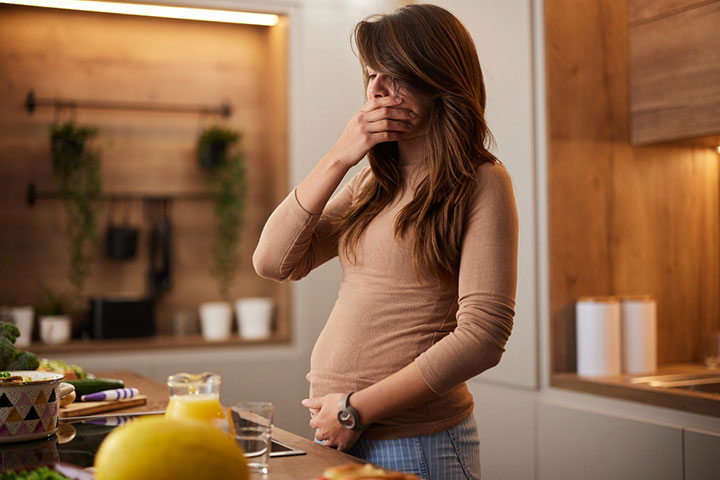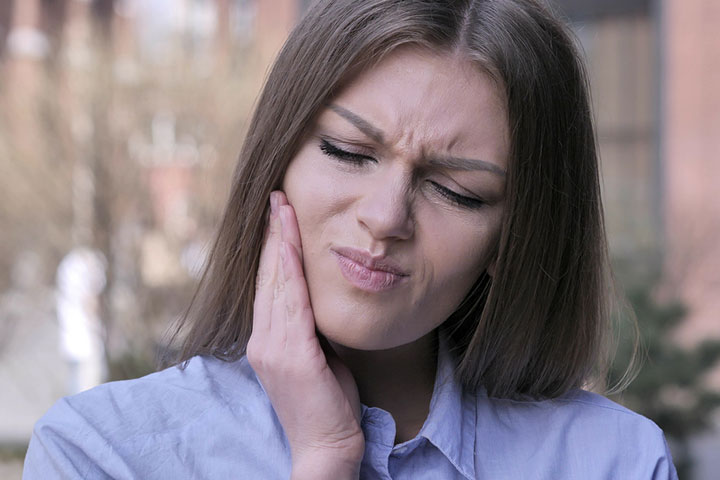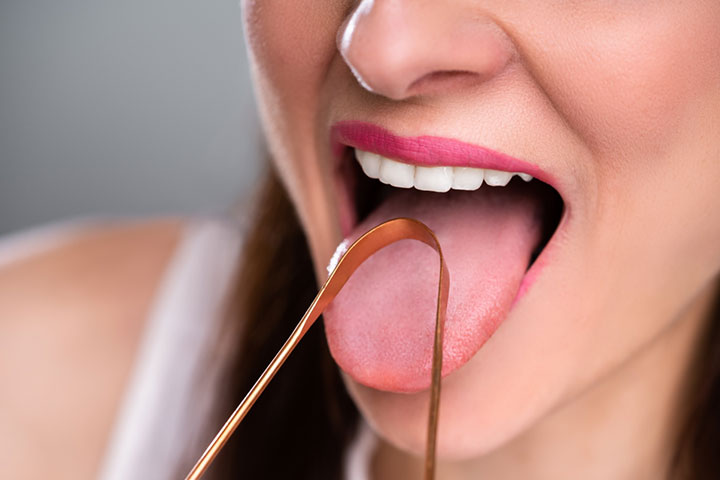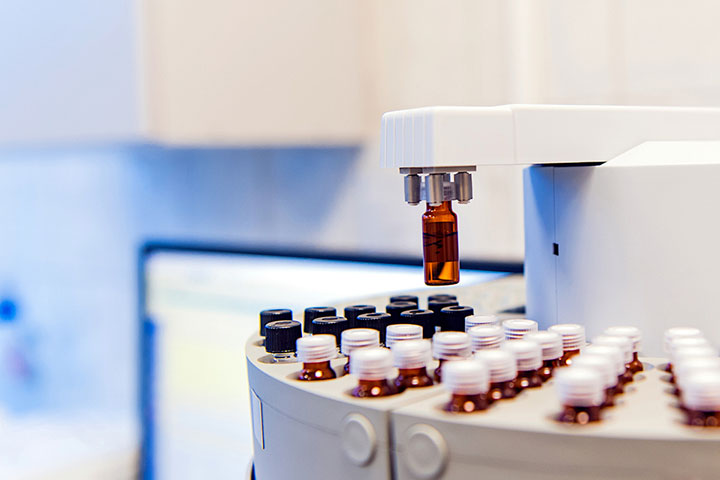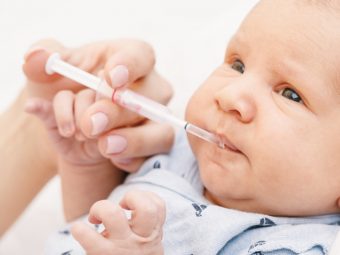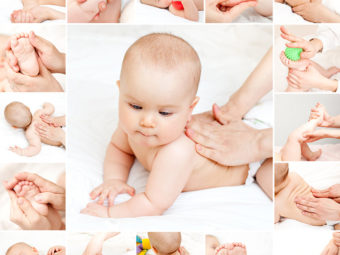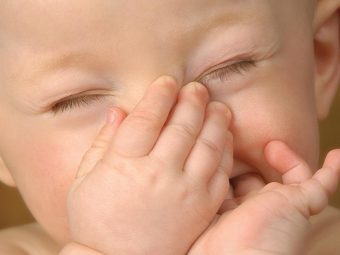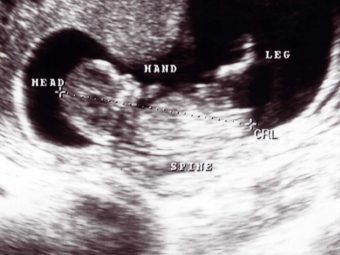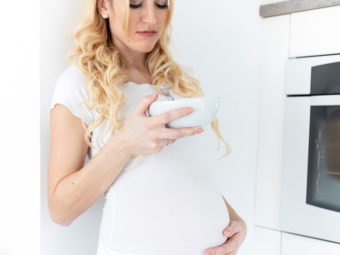
Image: Shutterstock
It is not common for women to experience unexplained bad breath during pregnancy. Bad breath can be defined as “offensive odors emanating from the mouth or air-filled cavities, such as sinuses, nose, and pharynx” (1). The source of bad breath, also called halitosis, is the oral cavity in 90% of all cases (2). Read this post to learn more about the causes, symptoms, prevention, diagnosis, and treatment of bad breath in pregnancy.
Is Bad Breath Normal In Pregnancy?
Bad breath in pregnancy is common and usually occurs as a result of changes happening in the body.
The bad odor from the mouth comes due to the volatile sulfur compounds (VSCs), which are mainly hydrogen sulfide and methyl mercaptan. Many oral bacteria produce these compounds that lead to bad odor (3).
 Quick fact
Quick factWhat Causes Bad Breath During Pregnancy?
The following are the common reasons that might cause the development of VSCs and eventually, bad breath in pregnancy.
- Hormonal changes: The increased hormones in the body might make your mouth an ideal breeding ground for plaque (4). An increase in the levels of estrogeniXA hormone responsible for the development and functioning of female reproductive organs and progesteroneiXA female reproductive hormone that plays an essential role in menstruation, pregnancy, and breastfeeding might exacerbate the response of the gums to plaque and cause gingivitisiX Inflammation, bleeding, and redness in the gums, usually caused due to poor oral hygiene and infections or inflamed gums (5). Swollen gums have pockets where food gets lodged and cause bad odor. Good hygiene can reduce plaque and thus reduce the swelling of gums in pregnancy (6).
- Vomiting: Pregnancy-induced nausea and vomiting due to morning sickness are experienced by 66% of pregnant women (7). Frequent vomiting leads to the creation of an acidic environment in the mouth and subsequent demineralization of the teeth. It makes the teeth more prone to food lodgement and tooth decay, which can cause a bad odor. (4)
Image: IStock
- Calcium deficiency: The baby in the womb absorbs calcium from the calcium deposits in the mother’s body. Insufficient calcium in the mother’s blood causes minerals to leach out from the bones and teeth. It can cause weak teeth that might be more prone to cavities and decayed teeth cause bad breath (8).
- Dehydration: It is suggested to drink more water during pregnancy to compensate for the lost fluid due to vomiting or excess urination. Drinking less water can cause dehydration and a dry mouth, which might cause bad odor. Drinking adequate water could help flush away the food debris stuck in the teeth.
- Lifestyle changes: Pregnancy causes hunger pangs in mothers and may lead to sleep deprivation. Frequent snacking and eating at night might cause bad odor from the mouth. Moreover, due to pregnancy cravings, some women end up eating sugary or junk food.
- Slow digestion: Digestion is usually affected in pregnancy due to the expanding uterus and the hormonal changes, which might cause acid reflux. Acid reflux can result in the demineralization of enamel, forming craters in teeth, and subsequent food lodgement (4). It may result in bad odor and may require changes in nutrition to manage.
- Decreased salivary flow: Saliva has a self-cleansing action on the teeth. It wipes the food remnants from the grooves of the teeth and keeps the mouth clean. Some studies have proven that salivary flow reduces during pregnancy, which might increase the chances of bad breath (9).
- Food: Food that contains ingredients with a strong fragrance like garlic, onions, coffee, etc., can also cause bad odor in the mouth (2). Therefore, making dietary changes and avoiding trigger foods can help prevent bad breath.
Image: IStock
- Medical conditions: Respiratory tract infections, ear, nose, and throat infections, diabetes, liver diseases, gastrointestinal diseases, endocrine diseasesiX Medical conditions caused due to improper functioning of the endocrine system, including diabetes and thyroid disorders , and metabolic disorders are some of the other causes of bad breath. Symptoms are often similar in non-pregnant and pregnant women (2)
The above conditions can lead to a wide spectrum of dental problems, which can eventually cause bad breath. Most cases are mainly due to gum inflammation (known as gingivitis).
It is important to note that pregnancy, by itself, has little impact on the occurrence of gingivitis or periodontitisiXInfections that cause swelling in the gums, bad breath, painful, loose, and sensitive teeth . Most often, the plaque is already present in the mouth. In the United States, research conducted by the National Institutes of Health (NIH) reveals that around 50% of all adults presently suffer from varying degrees of gingivitis, as observed through cross-sectional studies. Therefore, it is recommended that women who are planning their pregnancy get dental cleaning and polishing regularly. It is safe to have dental cleanings during pregnancy, but if you need any dental procedures, speak to your doctor for instructions.
Associated Symptoms Of Bad Breath (Halitosis) During Pregnancy
At times, you might not realize that you have halitosis, and it might be told to you by your family or close friends. However, you might notice one or more of the following symptoms along with bad breath.
- Red, swollen and bleeding gums
Image: IStock
- Dry mouth or reduced salivary flow
- Coated tongue
- Unpleasant metallic or bitter taste in the mouth
How To Avoid Bad Breath During Pregnancy?
Management of bad breath does not always need medical interventions. Some home remedies might help get rid of it.
- Brush your teeth twice a day as it is the first step in the process of achieving a healthy mouth.
- Floss your teeth daily to avoid food debris stuck between teeth.
- Clean your tongue as it shelters bacteria that might cause halitosis (2).
Image: Shutterstock
- Use lukewarm saltwater or an alcohol-free mouthwash to rinse your mouth after a meal.
- Avoid food with a strong smell or brush your teeth after consuming such food.
- Eat food that is rich in fiber because fiber-rich food has a self-cleansing action on the soft plaque of teeth. Also, fiber-rich food is important for good digestive health.
Sharing her own experience of tackling bad breath with the help of specific foods during pregnancy, Bailey Gaddis, a mother, notes, “Certain foods, such as leafy greens, celery, cucumbers, pears, apples, pineapple, cherries, melons, citrus fruits, parsley, basil, and spirulina (which was a surprising one all) helped to fight bad breath for me during pregnancy. Sticking those in a smoothie or just washing on any of those foods on their own could be helpful (ⅰ).’’
- Drink plenty of water as it will help in the prevention of dry mouth and the resulting halitosis.
- You can also use sugar-free chewing gums in order to get rid of the smell, and these gums also increase saliva production.
- Calcium supplements help maintain optimal blood calcium levels. Take consent from your doctor before using them.
- Get your dental check-up done regularly, which is usually recommended every six months.
When To See A Doctor
Experts usually recommend that a session of professional dental cleaning and polishing be done in the second trimester, even in the absence of any dental problems. You may discuss it with your doctor and dentist.
You should see a dentist under the following circumstances.
- Bad breath that is making you too self-conscious.
- Bleeding gum disease
- Any mobile(loose) teeth
- Painful teeth or gums
- Burning sensation in the mouth
- Metallic taste in the mouth
- Food lodgement between the teeth and gums
- Pus discharge from the gums
- A shiny red lump on the gum that looks like a raspberry, as it might indicate the presence of pyogenic granuloma, a gum infection which is seen in 5% of all pregnancy cases. (7)
Diagnosis Of Bad breath
Bad breath is most often identified by the patient or by a family member or close friend. If you suspect a bad odor in your mouth, a dentist might help you diagnose the cause through the following techniques (2).
- Organoleptic measurement: This is considered a standard gold test in confirming bad breath. In this method, the examiner measures the air expelled by the patient through the nose. It is the most commonly deployed method to diagnose halitosis.
- Gas chromatography: This is considered to be a highly reliable way to diagnose halitosis. Gas chromatographyiXA chemical technique used to separate the components of a mixture to be analyzed individually is used to measure volatile sulfur compounds (VSCs).
Image: Shutterstock
- Sulfide monitoring: Sulfide monitoring is a relatively cheap way to measure the VSCs. It gauges the electrochemical reaction of sulfur-containing compounds in the expelled air on a sulfide monitoring device.
- Chemical sensors: These sensors have an inbuilt probe that helps in measuring sulfur compounds from the tongue and the gum pockets. This sensor generates an electrochemical voltage, which is measured by an electronic device.
- BANA test: A strip composed of benzoyl-DL-arginine-a-naphthylamide is used to detect microorganisms that cause bad breath.
A few more tests which might be deployed by the dentist are:
- Quantifying β-galactosidase activity
- Salivary incubation test
- Ammonia monitoring
- Ninhydrin method
In most cases, malodor in pregnancy resolves with basic treatment protocols such as scaling and polishing the teeth, and these tests may not be necessary.
Your dentist will perform a thorough examination and decide if these tests are needed to diagnose the source of bad odor.
Is There Any Medical Treatment For Bad Breath In Pregnancy?
The dentist will find the cause of the bad breath and try to fix it. Your dentist may deploy one of the following treatments.
- Deep scaling and root planing to get rid of the plaque on the teeth and under the gums.
- Resin fillings for teeth that have worn out due to acid reflux or vomiting.
- Resin fillings for cavities.
- Curettage in the case of a lot of plaque deposition under the gums.
- Surgical or laser excision of pyogenic granuloma.
Any dental treatment should be done after taking consent from your doctor. There are some treatment methods that should not be performed.
- Avoid any elective and non-emergency treatment.
- Avoid any X-rays during pregnancy. In inevitable circumstances, ask your dentist to take optimum measures like covering with a lead apron.
- Do not consume any medication without taking consent from the doctor.
 Quick fact
Quick factFrequently Asked Questions
1. Does pregnancy cause bad breath?
Pregnancy in itself might not cause bad breath, but morning sickness, acid reflux, food cravings and repeated snacking, etc., that happen in pregnancy might cause bad breath.
2. Is bad breath a sign of pregnancy?
According to anecdotal evidence, the sense of smell heightens in pregnancy (10). It might make you more sensitive to the pre-existing foul odor coming from your mouth. However, bad breath alone cannot be considered a sign of pregnancy. You need to check for other more common symptoms such as missed menstrual cycle to associate the symptom with pregnancy. Every woman’s pregnancy signs and symptoms are different, and there is no “one size fits all” for pregnancy symptoms. See a doctor if you think you are pregnant.
3. Does bad breath in pregnancy say something about the baby’s gender?
There is no proven correlation between a baby’s gender and mother’s bad breath. You can read more about gender prediction here.
4. Does bad breath during pregnancy go away after delivery?
Yes, oral problems are likely to resolve after childbirth (12). This may include bad breath as well. However, if it persists, consult a doctor.
Bad breath or halitosis in pregnancy is not uncommon. Vomiting, calcium deficiency, hormonal changes, midnight munching on junk, dehydration, etc., are a few of the many reasons that may lead to foul odor from the mouth. Pregnancy gingivitis may also be a reason for a bad oral smell during pregnancy. Lifestyle modification and primary dental care, such as deep scaling and polishing, can help one get rid of the foul smell from the mouth.
Infographic: Tips To Ward Off Bad Breath During Pregnancy
Do you want to manage bad breath during pregnancy with simple home remedies? Here is an infographic with a few suggestions to try. Follow these promptly to freshen your breath and improve your oral health. Nevertheless, if your bad breath persists despite trying these remedies, see your dentist. Illustration: Momjunction Design Team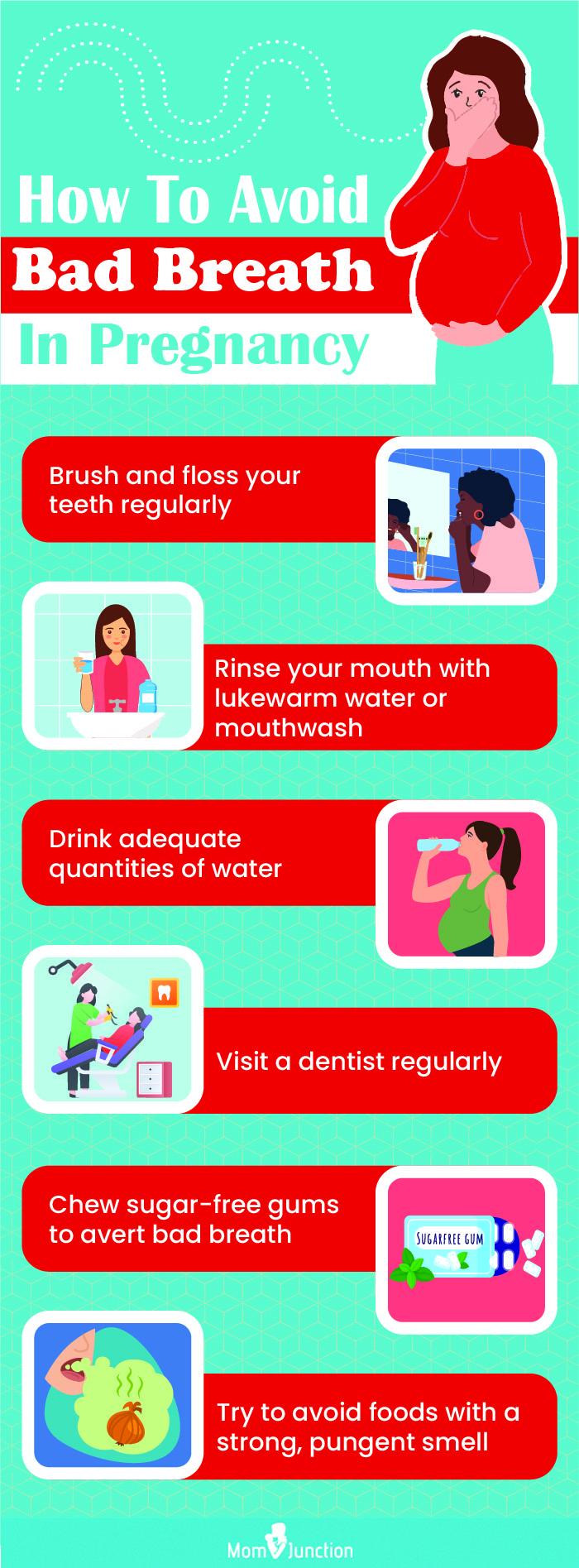
Key Pointers
- Oral bacteria in the mouth create volatile sulphur compounds (VSCs) which cause foul breath.
- Hormonal changes during pregnancy can worsen plaque buildup and lead to gingivitis.
- Medical conditions such as liver diseases, gastrointestinal disorders, and respiratory tract infections can also cause bad breath.
- Practising good oral hygiene, including cleaning the tongue, brushing and flossing teeth, can help prevent bad breath.
- Pregnant women can lower their risk of developing bad breath and other dental problems by getting dental cleanings.
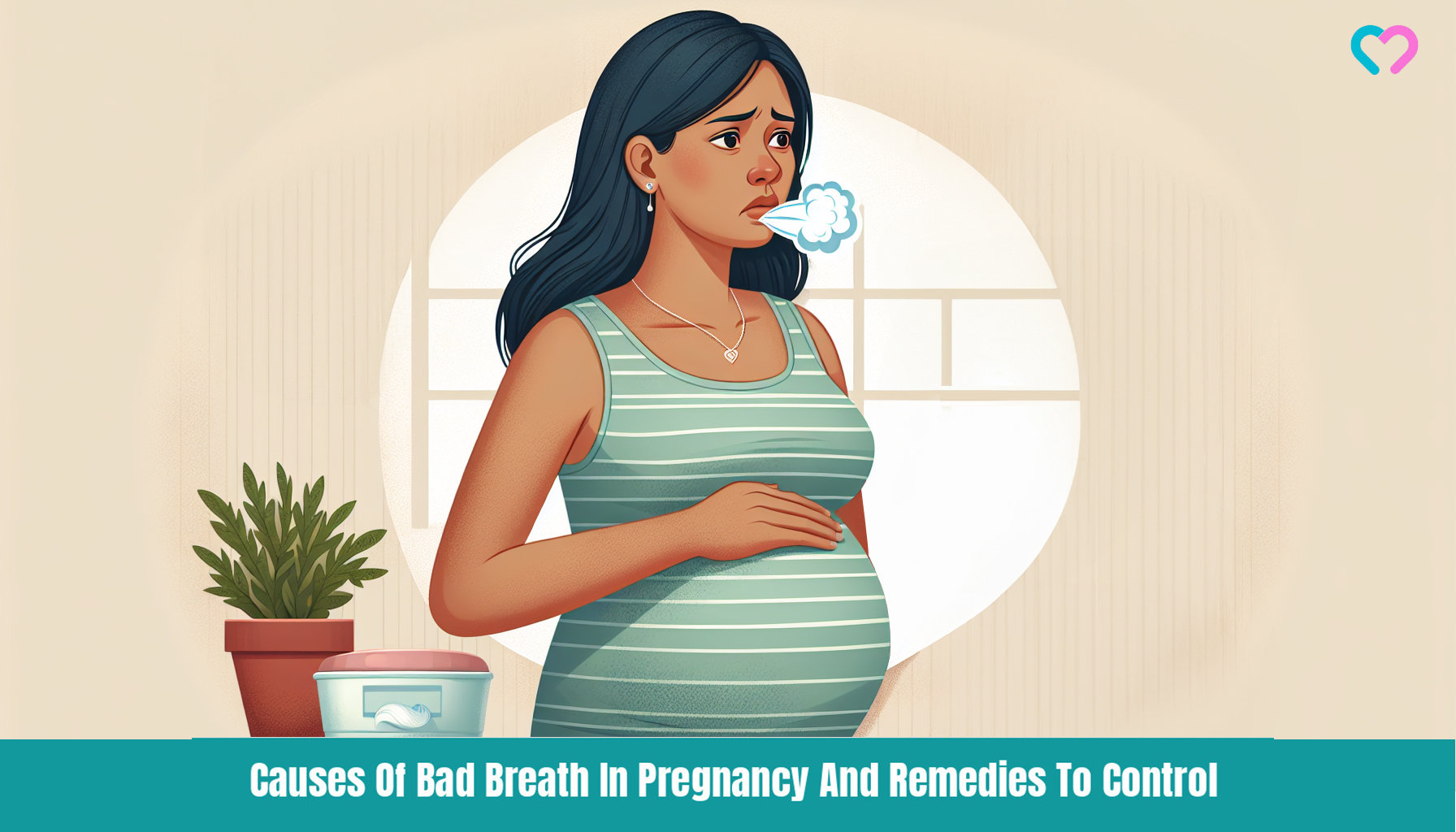
Image: Dalle E/MomJunction Design Team
Pregnancy can cause the development of body odor, bad breath, and vaginal odor. Watch this video for excellent advice on how to effectively manage these problems.
Personal Experience: Source
MomJunction articles include first-hand experiences to provide you with better insights through real-life narratives. Here are the sources of personal accounts referenced in this article.
ⅰ. How to manage body odor, bad breath + a stinky vagina during pregnancy;https://www.youtube.com/watch?v=mvCTIZJnk1g
References
1. Diana V. Messadi and Fariba S. Younai, Halitosis; Dermatologic Clinics Journal
2. Bahadır Ugur Aylikci and Hakan Colak, Halitosis: From diagnosis to management; Journal of Natural Science, Biology and Medicine
3. Albert Tangerman and Edwin G. Winkel, Volatile Sulfur Compounds as The Cause of Bad Breath: A Review; Journal of Phosphorus, Sulfur, and Silicon and the Related Elements
4. Mustafa Naseem et al., Oral health challenges in pregnant women: Recommendations for dental care professionals; The Saudi Journal for Dental Research
5. Supawadee Naorungroj, Jaranya Hunsrisakhun and Supitcha Talungchit, Oral hygiene status, self-reported oral malodor, oral hygiene practices, and oral health knowledge: A cross-sectional study in a group of Muslim Thai pregnant women; Journal of International Oral health
6. Min Wu, Shao-Wu Chen, and Shao-Yun Jiang, Relationship between Gingival Inflammation and Pregnancy; Mediators of Inflammation
7. Hemalatha VT et al, Dental Considerations in Pregnancy-A Critical Review on the Oral Care; Journal of Clinical and Diagnostic Research
8. Abdulrahman Almaghamsi, Mussa H. Almalki and Badurudeen Mahmood Buhary, Hypocalcemia in Pregnancy: A Clinical Review Update; Oman Medical Journal
9. Amruta A Karnik et al, Determination of salivary flow rate, pH, and dental caries during pregnancy: A study; Journal of Indian Academy of Oral Medicine and Radiology
10. E. Leslie Cameron, Pregnancy and olfaction: a review; Frontiers in Psychology
11. Tanya Wrzosek and Adrienne Einarson; Dental care during pregnancy; Canada Family Physician.
12. 5 weird pregnancy symptoms you might not know about; UT Southwestern Medical Center.





